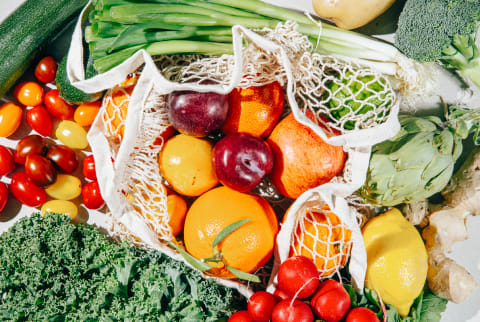Advertisement
This ad is displayed using third party content and we do not control its accessibility features.

Image by Carmen Palma / Stocksy
October 07, 2024
It may seem like vegans and animal-product eaters have nothing in common—dietarily, that is. One avoids meat, dairy, and other animal products at all costs; while the other may devour one or more of these food items daily.
Despite those differences, preventive cardiologist Ethan Weiss, M.D., says vegans and carnivores alike can probably agree on three healthy food principles.
On a mindbodygreen podcast episode, Weiss tells mbg founder and co-CEO Jason Wachob, not only are these three principles something all types of eaters can agree on, but they’re also probably going to stick around for the foreseeable future:
Certain candies and chips may be vegan, Weiss explains, but that doesn’t necessarily mean they’re part of a healthy diet. Similarly, non-vegans can indulge in processed cheeses and ice cream.
In other words, “You can eat crappy food that’s vegan,” Weiss tells Wachob, “and you can eat crappy food that’s keto or carnivore.” In either case, it’s important to choose minimally processed, whole foods when possible.
According to the Centers for Disease Control (CDC), a daily intake of added sugars2 should be less than 10% of a person’s total daily calories. Not only do added sugars have addictive properties3, but they can also negatively affect gut health, according to board-certified internist Vincent M. Pedre, M.D.
“It doesn’t mean you can’t have birthday cake, right? Have birthday cake, and don’t feel guilty about it,” Weiss says during the podcast. Instead, be mindful of sugar intake, and try to balance it with nutritious foods.
3.
Limit refined carbohydrates
Along with distinguishing high-quality and low-quality carbs, Weiss says it’s important to eat them in their natural state. For example, the carbohydrates in broccoli, which come from fiber, is neutral, if not good for you, he says. “Don’t even think about how much you eat of that nonstarchy, fibrous vegetable,” Weiss adds.
It’s important to remember, all three food principles are about limiting—not completely eliminating—these food groups.

